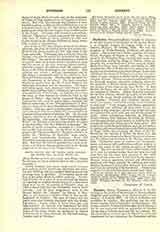
Duckett, Venerable
Two English martyrs for the faith during 17th century, Venerable James and Venerable John

Duckett, JAMES, VENERABLE, Martyr, b. at Gilfortrigs in the parish of Skelsmergh in Westmoreland, England, date uncertain, of an ancient family of that county; d. April 9, 1601. He was a bookseller and publisher in London. His godfather was the well-known martyr James Leybourne of Skelsmergh. Ho seems, however, to have been brought up a Protestant, for he was converted while an apprentice in London by reading a Catholic book lent him by a friend. Before he could be received into the Church he was twice imprisoned for not attending the Protestant service, and was obliged to compound for his apprenticeship and leave his master. He was finally reconciled by a venerable priest named Weekes who was imprisoned in the Gatehouse at Westminster. After two or three years he married a Catholic widow, but out of his twelve years of married life, no less than nine were spent in prison, owing to his zeal in propagating Catholic literature and his wonderful constancy in his new-found faith. His last apprehension was brought about by Peter Bullock, a bookbinder, who betrayed him in order to obtain his own release from prison. His house was searched on March 4, 1601. Catholic books were found there, and Duckett was at once thrown into Newgate. At his trial, Bullock testified that he had bound various Catholic books for Duckett, which the martyr acknowledged to be true. The jury found him not guilty, but Judge Popham at once stood up and bade them consider well what they did, for Duckett had had bound for him Bristowe’s “Motives”, a controversial work peculiarly odious to Anglicans on account of its learning and cogency. The jury thereupon reversed their verdict and brought in the prisoner guilty of felony. At the same time three priests, Page, Tichborne, and Watkinson, were condemned to death. Bullock did not save himself by his treachery, for he was conveyed in the same cart with Duckett to Tyburn, where both were executed, April 19, 1601. There is an account, written by his son, the Prior of the English Carthusians at Nieuport (Flanders), of James Duckett’s martyrdom. On the way to Tyburn he was given a cup of wine; he drank and desired his wife to drink to Peter Bullock, and freely to forgive him. At the gallows his last thoughts were for his betrayer. He kissed him and implored him to die in the Catholic Faith.
JOHN DUCKETT, VENERABLE, Martyr, probably a grandson of Venerable James Duckett, b. at Underwinder, in the parish of Sedbergh, Yorkshire, in 1603; d. September 7, 1644. He was ordained priest in 1639 and afterwards went to Paris where he studied three years in the College of Arras. He had an extraordinary gift of prayer, and while yet a student would spend whole nights in contemplation. On his way to the English mission, he spent two months in spiritual exercises, under the direction of his uncle, the Carthusian prior at Nieuport. He labored for about a year in Durham, and was taken near Wolsingham on his way to baptize two children, July 2, 1644. The place which tradition declares to be that of his arrest is now marked by a tall stone cross. Carried to Sunderland, he was examined by a Parliamentary Committee of sequestrators, and placed in irons. He confessed his priesthood and was thereupon sent up to London with Father Ralph Corbie. S.J. (q.v.), who had been arrested about the same time near Newcastle-on-Tyne. They were committed to Newgate, and edified the crowds of Catholics who flocked to see them by their joyousness, their sanctity, and their longing to suffer for Christ. A reprieve for one of them having been obtained, each refused to take it for himself. On his way to execution, Duckett astonished all by his supernatural joy; comforting those who wept for him, he said smiling: “Why weep you for me who am glad at heart of this happy day?” His jailers even were so struck by his gladness that they exclaimed “assuredly this man dies for a good cause”. He suffered with Father Corbie, at Tyburn. In a farewell letter to the Bishop of Chalcedon, he wrote on the eve of his martyrdom: “I fear not death, nor I contemn not life. If life were my lot, I would endure it patiently; but if death, I shall receive it joyfully, for that Christ is my life, and death is my gain. Never since my receiving of Holy Orders did I so much fear death as I did life, and now, when it approacheth can I faint?”
BEDE CAMM

